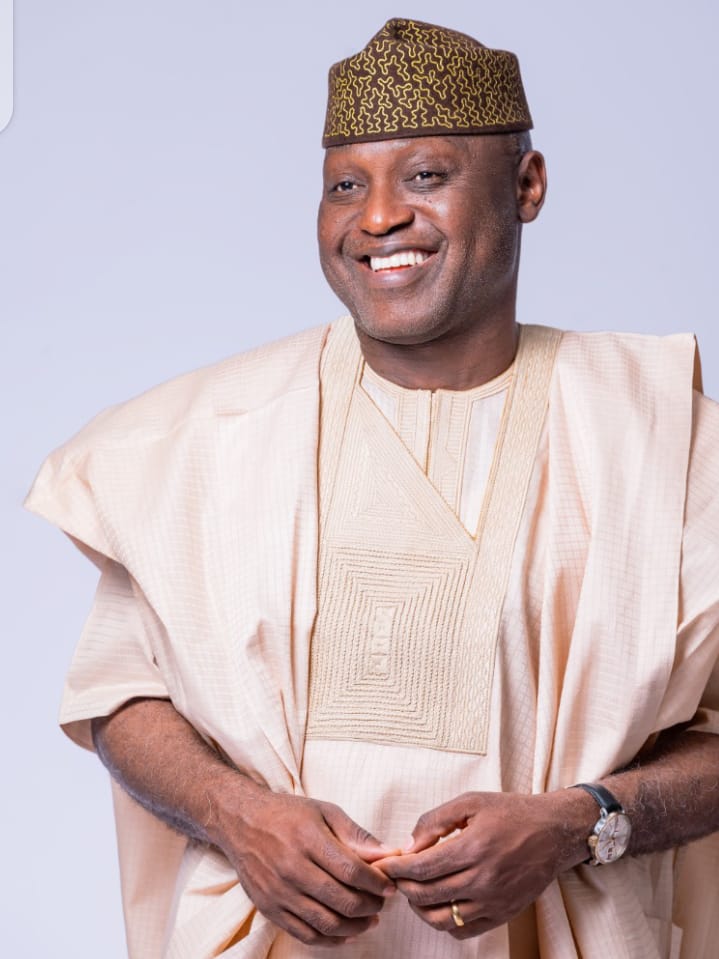Why Challenging an Incumbent in a Primary Election is a Political Minefield
By Idowu Ephraim Faleye-08132100608
The atmosphere of a primary election in Nigeria is always a spectacle. As the political climate matures, various aspirants begin to emerge, each armed with different strategies to actualize their ambitions. The season is filled with speculations, assumptions, rumors, propaganda, and intricate political maneuvering. Aspirants and their supporters engage in fierce struggles, making bold claims about their chances of clinching the ticket. Political alliances are formed and broken overnight, as individuals make calculated moves in search of the best ways to fulfill their aspirations.
One of the most fascinating aspects of this period is the sheer unpredictability of human behavior. Politicians begin switching camps based on personal interests, political calculations, or, in some cases, even spiritual prophecies. Many aspirants consult so-called prophets who claim to see visions of their victory. Unfortunately, experience has shown that a good number of these prophecies are tailored to suit the desires of the client. These “spiritual consultants” understand the psychology of desperate politicians and know that telling them the cold truth might mean losing them as clients. Instead, they spin narratives that feed into the aspirant’s ambition, assuring them of a divine mandate that often leads nowhere.
Meanwhile, political misinformation spreads like wildfire. False narratives are manufactured and circulated strategically to sway public perception. Supporters create and peddle baseless rumors, trying to convince the electorate that their preferred aspirant is the best choice. The game is ruthless, and only those who understand its dynamics can navigate it successfully.
Through years of political engagement, one of the most valuable lessons I have learned is that the top players in the two dominant political parties often remain where they are. Regardless of the turbulence within the party, the “first eleven” of each political party—those with deep-rooted influence and strong backing—rarely defect. Instead, it is the disgruntled politicians, often those who feel sidelined or denied a fair opportunity, who jump ship in search of greener pastures.
The perception of a better opportunity in another platform fuels these defections, and when they leave, they boast loudly about their ability to change the game. They claim to have the grassroots in their pocket and swear that their exit will shake the foundation of their former platform. However, the reality is often different. Many of these defectors find that the influence they thought they wielded is not as strong as they imagined. The political terrain is unforgiving, and those who switch sides too frequently soon discover that loyalty is a scarce commodity in Nigerian politics.
Despite the confidence exuded by aspirants, one hard truth remains unchanged: it is nearly impossible for any aspirant to defeat an incumbent governor in a primary election conducted within the party. The incumbent holds certain inherent advantages that make their position almost unassailable. One of the most significant factors is the loyalty of the party executives.
Before the primary election, a party congress is usually held to elect new party officials at different levels. These officials, in most cases, owe their positions to the incumbent, meaning their loyalty is naturally aligned with him. In Nigeria, party executives play a crucial role in determining the outcome of primaries. Their influence shapes delegate selection, and since most primaries are delegate-based, the incumbent has a clear head start.
Beyond loyalty, there is also the issue of resources. Elections, even at the primary level, require extensive financial investment. The incumbent governor, by virtue of his position, has access to resources. No matter how wealthy a challenger may be, they cannot outspend an incumbent who has the advantage of distributing patronage and controlling the machinery of government.
Moreso, in every election, there are key fieldworkers who serve as the operational backbone of any campaign. These are the individuals responsible for mobilizing support, handling funds, and ensuring that campaign logistics run smoothly. My experience has taught me that the most reliable fieldworkers are those who have something at stake. These are people who hold strategic positions within the party and the government and are eager to maintain their relevance. Because they have a vested interest in the outcome, they work with efficiency and even go the extra mile by contributing their own personal resources when necessary. On the other hand, aspirants who are challenging the incumbent often have to rely on external mobilizers, many of whom lack the same level of commitment. Some of these individuals see campaign funds as an opportunity for personal enrichment rather than an instrument for actualization of political success. They divert significant portions of the funds meant for mobilization, making it difficult for the campaign to achieve its objectives.
Another key factor in primary elections is the mode of voting adopted. If the election is a delegate-based system, the incumbent enjoys a substantial advantage due to the presence of automatic delegates. These include party leaders, past and serving elected officials, and other key stakeholders who, by default, align with the sitting governor. In numerical terms, these automatic delegates constitute about 30% of the total voting delegates. This means that before the race even begins, the incumbent already has a head start, akin to a race where one competitor begins 30 meters ahead of the others in a 100-meter sprint.
If, on the other hand, the election follows the Option A4 method—where voters queue openly behind their preferred aspirant—the challenge shifts to securing grassroots support across all wards. In this scenario, the most influential figures in each ward—those who have been empowered over time—hold the key to victory. They are the ones who can mobilize large numbers of supporters to physically demonstrate their allegiance on election day. Once again, the incumbent governor has the upper hand because these local influencers are often people who have benefitted from the current administration and are unlikely to betray the hand that feeds them.
Looking at the forthcoming political season in Ekiti State, it is clear that these dynamics will play out once again. As aspirants position themselves for the next primary elections, we can expect the usual flurry of defections, ambitious declarations, and political grandstanding. Some will leave their parties in protest, claiming they were sidelined, while others will remain, hoping to strike last-minute deals. Social media and political gatherings will be awash with speculations and strategic propaganda, as each camp seeks to shape public opinion in its favor. However, history has shown that beyond all the noise, the fundamentals of power politics remain unchanged.
The only real scenario in which an incumbent can be defeated in a primary election is if a higher authority within the same political party throws their weight behind a challenger. This has only happened once in Nigeria’s history when a sitting governor lost a primary election due to the influence of the president. Without such external interference, it is nearly impossible to unseat an incumbent within the party structure.
As we approach the next primary election cycle in Ekiti, aspirants must ask themselves hard questions. Are they truly prepared for the financial and political battle ahead? Do they have the necessary alliances within the party structure? Are they surrounded by trustworthy mobilizers who will not divert campaign resources? Are they relying on genuine grassroots support or merely being deceived by sycophants?
For those who dream of challenging an incumbent, the path is steep and fraught with obstacles. It is not enough to have ambition; one must have an impeccable strategy backed by extensive political goodwill. Anything short of this will only lead to wasted efforts, disappointment, and, in many cases, political irrelevance. The game of politics is not for the faint-hearted, and as the next season of primaries approaches, the realities of power will once again be laid bare.
